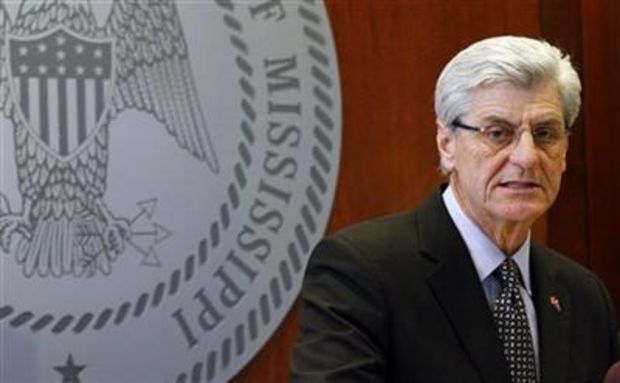

JACKSON, Mississippi (AP) — Mississippi Gov. Phil Bryant said Tuesday that he supports proposals to require collection of DNA from people arrested and charged with violent crimes such as murder.
Bryant said he believes DNA testing will help solve crimes and could exonerate innocent people who are wrongly accused.
Under current Mississippi law, DNA is collected only after someone is convicted. Two similar bills, to allow collection after arrest, are working their way through the legislative process.
“I look forward to signing them just as quickly as they get to our desk,” Bryant said during a news conference in his Capitol office.
House Bill 68 passed the House on Monday, and Senate Bill 2430 passed the Senate Tuesday. The two chambers will swap bills for more work.
A divided U.S. Supreme Court ruled in a Maryland case last summer that law officers can take DNA from anyone arrested for a serious crime. Justice Anthony Kennedy wrote for the five-justice majority: “Taking and analyzing a cheek swab of the arrestee DNA is, like fingerprinting and photographing, a legitimate police booking procedure that is reasonable under the Fourth Amendment.”
The four dissenting justices said the court was allowing a major change in police power, and Justice Antonin Scalia predicted that limiting the DNA collection to arrests for serious crimes would not last.
“Because of today’s decision, your DNA can be taken and entered into a national database if you are ever arrested, rightly or wrongly, and for whatever reason,” Scalia wrote.
The bills in Mississippi are being promoted by a victims’ advocacy group, DNA Saves, which says the testing can help identify people who commit more than one crime. The group says 27 states already have enacted laws similar to the one proposed in Mississippi.
Jayann Sepich, a New Mexico woman whose 22-year-old daughter was raped and killed in 2003, is with DNA Saves. During a conference call with Bryant on Tuesday, she thanked Mississippi officials for considering a new law.
“Really and truly, there are lives that will be saved,” Sepich said.



